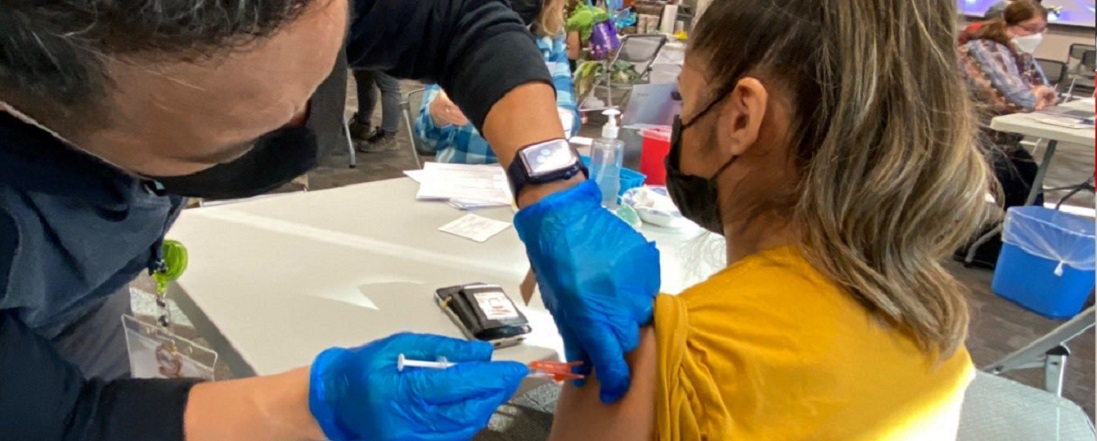
Statement
Statement: Why PHI is Supporting Science, Backing Vaccine Requirements and Ensuring Vaccine Equity Access
-
Focus Areas
Communicable Disease Prevention -
Strategic Initiatives
COVID-19, Vaccine Access & Equity

Statement from Mary A. Pittman, DrPH, CEO and President, Public Health Institute
“Earlier this month the Public Health Institute implemented an organization-wide policy requiring that all of our U.S.-based employees, regardless of whether they are working in-person or remotely from home, be vaccinated against COVID-19.
“For a leading public health organization such as PHI, that might not be a surprising decision. Science, best practices and research are the foundation of public health work, after all. In a world where science and data are fast becoming political and politicized, though, I thought it was important to share our decision publicly and clearly.
“We have reviewed and updated all of PHI’s COVID policies throughout the pandemic, adjusting them as new data and best practices become available. The implementation of PHI’s vaccine policy was made in the aftermath of a deeply concerning split-decision by the U.S. Supreme Court on January 13. It halted the Biden administration’s proposal to implement an emergency temporary standard through the federal Occupational Safety and Health Administration (OSHA) that would have required large employers to ensure that their employees are vaccinated, or tested weekly, and wear masks at work.
“While the U.S. Department of Labor has withdrawn its emergency temporary standard based on the Court’s ruling, we are pleased that the department is continuing to pursue the same standard as a proposed rule through the federal regulatory process and that OSHA is focusing its resources on finalizing a permanent COVID-19 Healthcare Standard.
“Promoting and supporting full vaccinations for COVID-19 is one of the most important tools we have to see our way out of this pandemic. We need to do all we can, and use every tool at our disposal, to ensure our employees, their families, and our communities are safe.
“That is why PHI has also joined with the California Medical Association, the ProtectUs coalition, and California school districts in supporting SB 871, legislation authored by California Senator Richard Pan (D-Sacramento). It would add COVID-19 to the list of vaccinations required at California’s public schools, eliminate personal exemptions, and make sure that every child in our public schools will be safe, healthy and ready to learn.
“Ensuring vaccinations in the workplace and at schools keeps everyone safer—including those who may be too young for vaccinations, the immune compromised, and others at high risk. Every vaccination moves us one step closer to the end of this pandemic. In addition to supporting these policies, PHI will continue our critical partnerships with community-based organizations in 26 states, who are serving as trusted messengers to dismantle vaccine barriers in our country’s most systemically excluded communities.”
More Updates
Work With Us
You change the world. We do the rest. Explore fiscal sponsorship at PHI.
Support Us
Together, we can accelerate our response to public health’s most critical issues.
Find Employment
Begin your career at the Public Health Institute.



